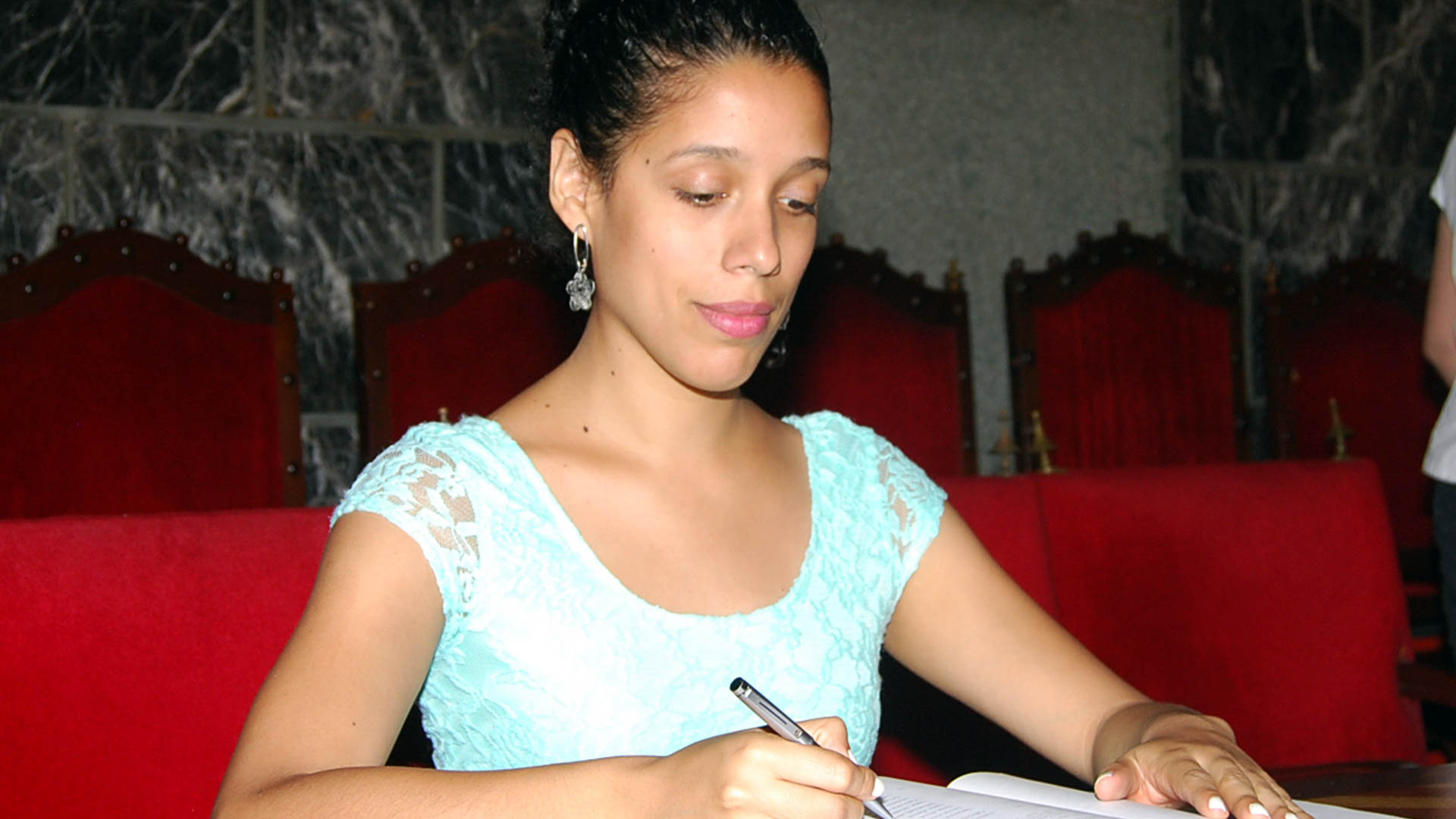

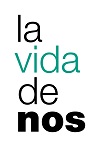
María Laura Silva always wanted to be a doctor. She was presented with many an obstacle as a student of medicine, some of them posed by the crisis facing the country, but that didn’t undermine her determination to graduate. Still, one day in 2018, while at work as a medical intern at a hospital, she began to ask herself whether she should stay the course.
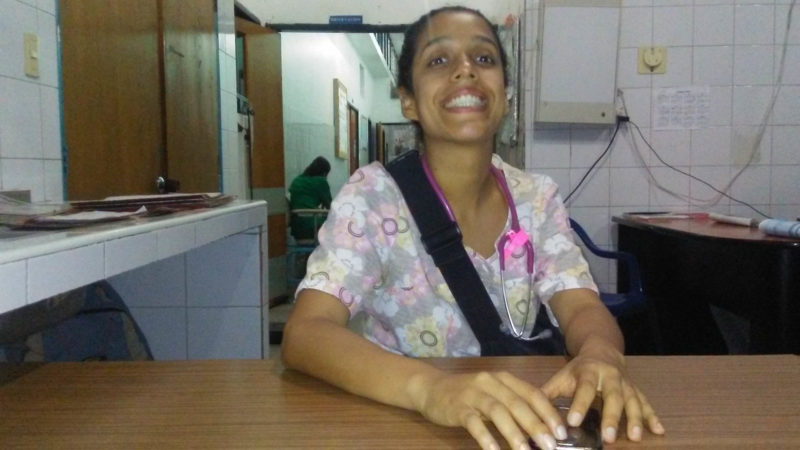 PHOTOS: FAMILY ALBUM
PHOTOS: FAMILY ALBUMI remember arriving on time to start my shift. It was 7:00 pm and I had just taken a shower and was wearing my surgical gown, ready to take notes on the patients we would be assigned; I had also taken with me some notes I wanted to go through if had any time to spare. I was eager to deliver babies, take measurements and talk to patients.
It was 2018. A financial crisis was looming over the country, but I only had one thing on my mind: I would graduate as a medical doctor by mid-year. It was like a lighthouse in the middle of the storm. There was no lack of money or public transportation crisis or power outage that could prevent me from accomplishing a goal I had set for myself when I was a teenager.
We reviewed the patients’ charts and then scurried around like ants. Students discussed exams and graduation parties; medical residents rushed to their rooms if they could afford the opportunity. They knew from past experience that that quiet at the start of a shift could only portend a lot of action in the coming hours.
And rightly so.
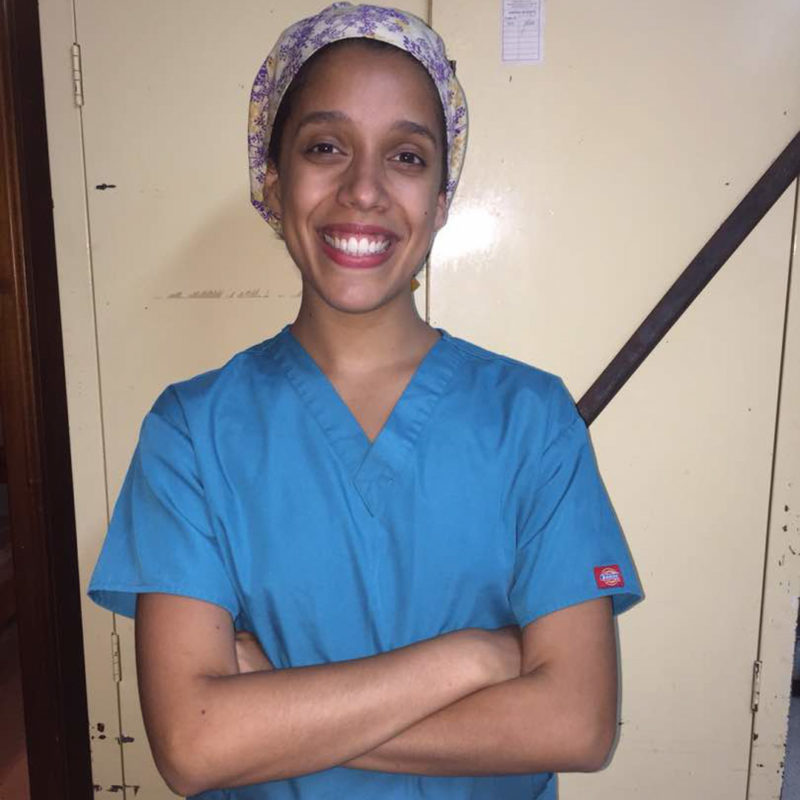
Medical teams are hierarchical in nature. Sixth-year interns are the workhorse who receive patients when they first come in. If the going gets tough, residents completing the 1st, 2nd and 3rd year, who call themselves R1, R2 and R3, are consulted. Only in exceptional cases are specialists sent for.
New patients arriving in the Emergency Room are a puzzle and an adventure for the frontline staff. In obstetrics, the task mostly involves assessing the patient’s general condition, measuring and palpating her belly, listening to her concerns, and making decisions based on that information, after which she could be admitted, or induced labor, or sent home to wait until it’s time.
It is also important to monitor the heart rate of the fetus, to which end we use a standard stethoscope or a Doppler ultrasound device that looks like a mini-radio. The Doppler is portable and amplifies the sound waves of the baby’s heartbeat. The obstetrics emergency has its own orchestra of miracle devices which play a symphony where the drum makes the sound of a hummingbird’s heart. I used my stethoscope. The Doppler was extremely expensive and my family’s finances had been shaken enough as it was.
A patient arrived. I immediately grabbed my measuring tape and my stethoscope. After a few preliminary questions, I asked her to lie down and lift her blouse so I could take a look at her belly. I palpated her, felt the baby’s shoulder, calculated its position and placed my stethoscope on that spot, waiting to listen to the humming of the baby’s heart, as I used to do. But I got nothing.
“I’m probably not doing it right,” I thought.
I changed the position of the stethoscope and palpated the patient’s belly again, convinced that I had made a mistake the first time around. Although all measurements pointed to the same spot, I tried on others. I checked, adjusted and cleaned my stethoscope and tried again. Nothing.
Maybe I was distracted.
I borrowed a Doppler from the on-call resident who was busy with administrative work; she barely looked up when I asked her.
“Be my guest; no problem,” she said. “Let me know if there’s anything I can do to help,” she added, writing orders and affixing stamps on medical histories.
I hurried to cover the patient’s abdomen with the gel I had taken from another service and looked for the heartbeat with the Doppler.
Dead silence.
“Today it’s not my day,” I said to myself.
I felt sluggish, inexperienced and incompetent. I was already in the 6th year and I couldn’t get something as basic as a heartbeat. Well, there are days like that. So I called the resident, thinking she would get it in a fraction of a second and that she would look at me over the top of her glasses like saying: “See? It’s easy. Take note.”
But the resident didn’t pick it up either. She gently pushed me aside to open a drawer that contained a stash of fresh batteries and replaced the ones in her device. She turned the volume up and down and tapped it a few times. Nothing.
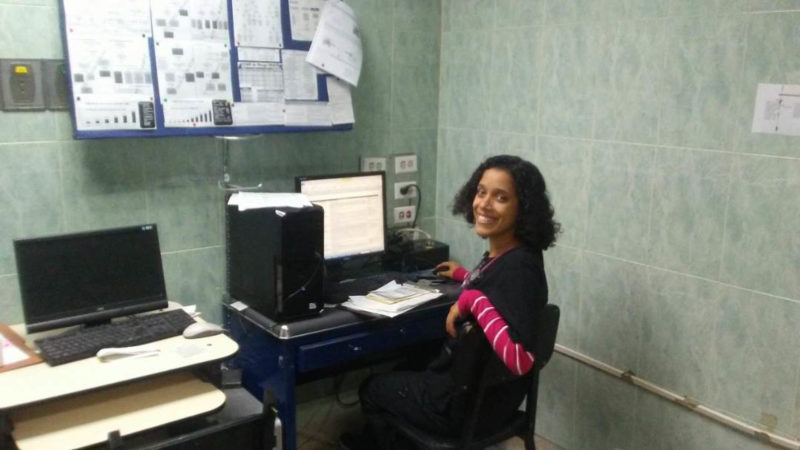
“When was the last time you felt the baby move?” she asked the patient.
The patient looked up at the ceiling with her big black eyes, as if she were trying to remember, and instinctively tucked a strand of yellow hair that was falling on her cheek. She was an athletic 27-year old woman whose optimism was in stark contrast with so many other patients who came in spent, confused and alone.
“This afternoon,” she replied. “Why?”
“Because I can’t listen to the baby’s heart,” the resident replied. “I’m going to call the 2nd year resident.”
The patient looked at me and then in the direction of the hall. Her husband was there, hiding in a corner. Men are not allowed to wait inside the obstetrics ER, but I wasn’t going to be the one to remove him.
An entourage of residents arrived in seconds, including the R2, the R3 and the specialist. The case was now out of an intern’s league. They gathered around the patient that I had been so excited to receive.
Listening and paying attention is crucial, even if you are sidelined, but something told me I needed to distance myself a bit from the scene. I went to the interns’ room to get my water bottle, but I could still hear what they were saying. I kept the lights off and sat on the bed.
It was a strange conversation paced by a bunch of questions and awkward silences.
“Did you feel the baby move this afternoon?” asked the specialist.
“I did,” answered the patient.
“She is eight months into her pregnancy,” said R2.
“I don’t get a sound,” confirmed R3.
“Ma’am, we can’t hear your baby’s heartbeat,” the specialist added softly.
It all turned into an intelligible whisper. I was afraid to get out of the interns’ room because I knew the remarks of the specialist carried an ominous undertone and that they were telling her that her baby was dead.
Suddenly, the emergency room was all screams, cries and laments from the patient.
“But the baby was moving this afternoon,” she kept repeating.
I finished my water and got out. By some strange design, she was the only patient; it was like the entire ER had stopped with her pain.
“Copy the list of supplies on the wall and give it to the husband,” I was ordered.
A piece of paper taped somewhere in the room listed the items that the patient was required to bring, depending on whether it was a delivery, a C-section or a curettage. There was no paper for me to copy it, so I went through my stuff, cut out a section of a notepad sheet and copied the list on the wall. It had everything you need for the saddest delivery imaginable: a stillbirth.
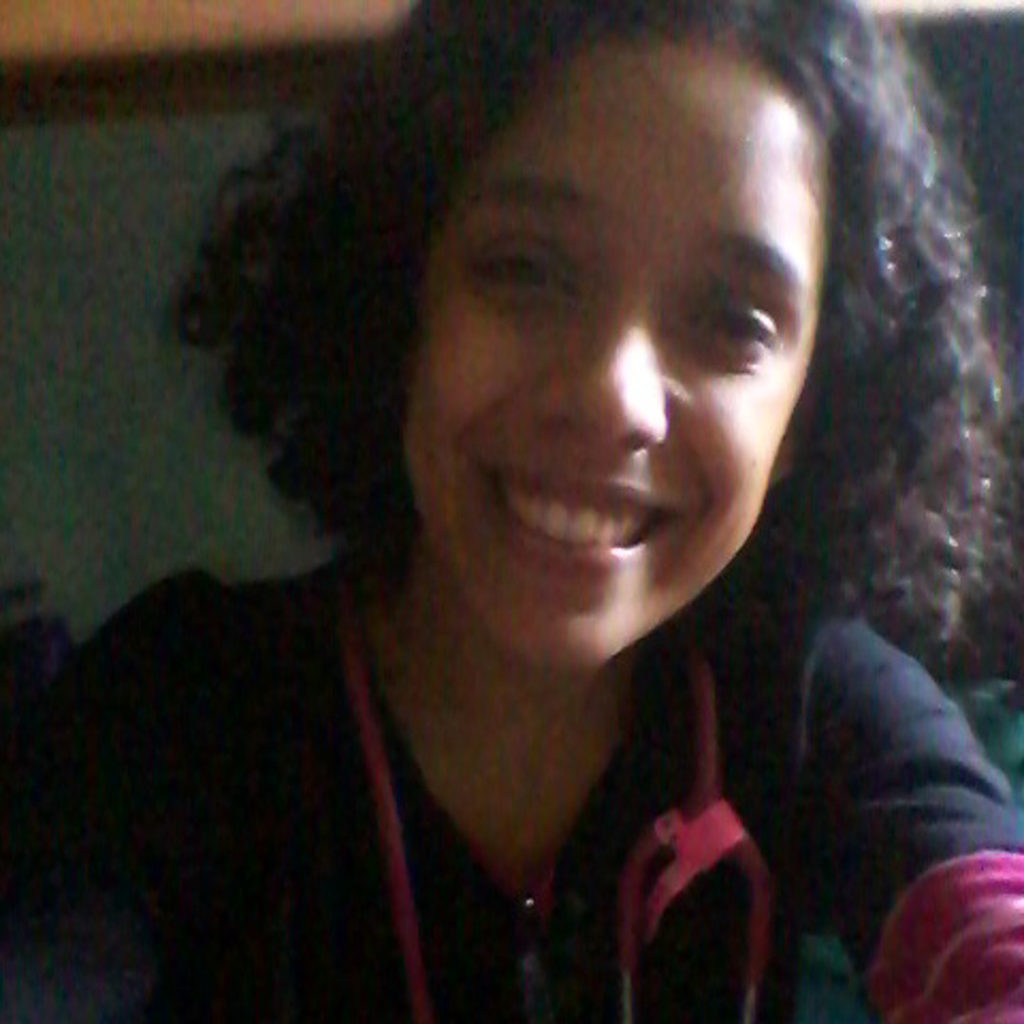
I felt powerless with my little piece of paper as I listened to the woman cry and watched the agitated residents… and the husband. I had to tell him that he had to go get a number of costly, hard-to-find medical supplies, and that he had to do it quickly.
I handed him the list, avoiding eye contact as much as possible. I felt embarrassed and outraged because I had to deal with a health crisis that was not my responsibility but of which I was the visible face. It was me who had to give the patient’s husband a poorly cut handwritten piece of paper with a list of things that a top-level public facility such as that one —with staff trained to treat the most complex emergencies— should have in large amounts. It was an academically suited healthcare facility, but it lacked the necessary materials for us to do our job.
A voice in my head, which I desperately tried to ignore, asked me:
“Is this how you want to practice medicine?”
And I wanted to ignore it because the answer was that it wasn’t, that for more than six years of actual classes and classes suspended because of the country’s political turmoil, I had been picturing something entirely different.
I always knew that Venezuela was a country with colossal challenges. As a teenager, I had the opportunity to share with some of the hospital’s doctors, visit the facilities and watch them running. Those challenges, far from discouraging me, inspired me. But what happened when there were no supplies to work with? What can a doctor do without supplies? Or with second-hand supplies? Or with supplies from the black market? This was a new challenge, and no one could answer those questions for me.
I worked more shifts in other services, but the conditions were the same. Sometimes, tragedy struck not because of the crisis but because, at a given time, the hospital didn’t have an antibiotic or a therapy or a device that could have saved the life of a patient and that patient wasn’t lucky to find or couldn’t afford to buy. And there were the doctors, standing up for a system that was failing their patients and themselves every single day.
That timid and inquisitive voice in my head was now louder and clearer. I had more answers and was gradually coming to terms with them.
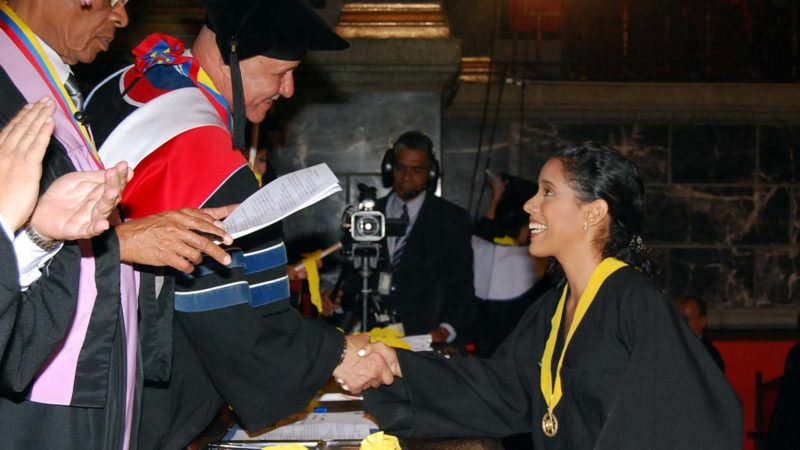
My graduation was a bittersweet experience. As I was receiving my diploma, I had already bought my ticket to leave the country. The only things we managed to buy with our money was a small dinner and a few drinks to celebrate. Long days of administrative paperwork and long lines at the president’s office and at the registry office awaited me.
But now I had a new drive and a new goal: to migrate.
Like many others, I had to squeeze my life of 26 years into 48 lbs. of luggage, but not my magenta stethoscope. I intentionally left it in my room as a symbol of all the things I needed to have with me to practice the art of medicine and as an invitation to return one day and use it again, hopefully in a healthcare system where asking patients for supplies will only be a distant bad memory.
 This story was written within the framework of the “Narrative Medicine: Our Bodies also Have Stories to Tell” course taught to healthcare professionals via our El Aula e-nos online training platform.
This story was written within the framework of the “Narrative Medicine: Our Bodies also Have Stories to Tell” course taught to healthcare professionals via our El Aula e-nos online training platform.
1143 readings
I was born and raised in the middle of the tropical mountains of Mérida. I wanted to be a writer to tell stories, but I became a doctor to try to change them. I am now a migrant who loves the orange-yellow color of fall and longs for Venezuelan Christmas.